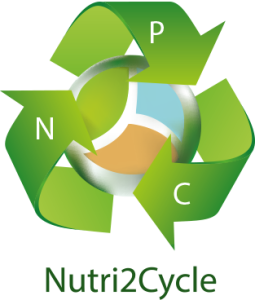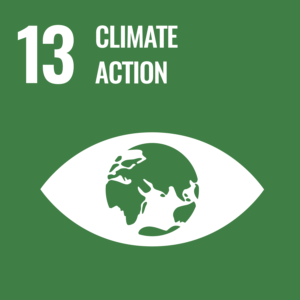Transition to more carbon and nutriend efficient agriculture in Europe

WHAT IS NUTRI2CYCLE?
The NUTRI2CYCLE project has been created to be able to evaluate the current flows of nitrogen (N), phosphorus (P) and carbon (C) by analyzing existing management techniques in different farms across Europe and analyzing the related environmental problems. This initiative aims to use an integrated approach to support the transition from European agriculture to the next generation of agronomic practices based on an optimized nutrient and organic carbon cycle. Actions such as addressing nutrient flow gaps will help reduce GHG emissions, reduce soil degradation and improve the EU’s independence on energy and nutrients.
OBJECTIVES
NUTRI2CYCLE aims to interact with all actors influencing the entire value chain, from farmers to end users, in order to:

WHY?
European agriculture is characterized by a high contribution to greenhouse gas (GHG) emissions and inefficient carbon recovery and reuse of the main plant nutrients, which are nitrogen and phosphorus. The recovery of these two nutrients on farms can be significantly improved by creating better synergies between animal husbandry and crop production. These improvements will mean the return of carbon to the soil and the reduction of GHG emissions, which could be combined with the production of energy for self-consumption on the farm.
METHODOLOGY
To achieve these results, the project is based on identifying the most efficient types of agricultural systems in Europe, defining indicators to monitor and demonstrate environmental advantages, and establishing innovative business cases at pilot scale. Thus, the three pillars on which the tests and studies will be carried out are: agroprocessing, animal husbandry and plant processing.
DURATION
October 1, 2018 – September 30, 2023
PROJECT WEBSITE
LINK TO CORDIS
The NUTRI2CYCLE project has received funding from the European Union’s Horizon 2020 research and innovation program under grant agreement no. 773682.

PARTICIPATING PARTNERS
| COUNTRY | ORGANIZATION | TYPE OF ENTITY |
| Belgium | Universiteit Gent – UGENT | University |
| Belgium | United Experts – DLV | Consultancy |
| Belgium | European Biogas Association – EBA | Association |
| Belgium | Provinciaal Extern Verzelfstandigd Agentschap in Privaatrechtelijke Vorm VZW – INAGRO | Research Center |
| Italy | Universita degli Studi di Milano – UNIMI | University |
| Italy | Consorzio Italbiotec | Research Center |
| Poland | Politechnika Czestochowa – PCZ | University |
| Spain | Centro Tecnológico CARTIF – CARTIF | Research Center |
| Spain | Institut de Recerca i Tecnologia Agroalimentàries – IRTA | Research Center |
| Spain | Centre de Recerca en Economia i Desenvolupament Agroalimentari – CREDA | University |
| Germany | Bundesforschungsinstitut Fuer Laendliche Raeume, Wald und Fisherei – Johann Heinrich Von Thünen-Institut – THÜNEN | University |
| Portugal | Instituto Superior de Agronomia – Universidad de Lisboa – ISA ULISBOA | University |
| Denmark | Kobenhavns Universitet – KU | University |
| Hungary | Trade and Service Providing Limited Liabilty – SOLTUB | Company |
| Hungary | 3R-BioPhosphate Ltd. | Company |
| Netherlands | Stichting Wageningen Research – WUR | University |
| Netherlands | Zuidelijke Land-En Tuinbouworganisatie Vereniging – ZLTO | Association |
| France | Chambre Interdepartementale d’Agriculture de la Charente-Maritime et des Deux-Sèvres | Public Organization |
| Ireland | Agriculture and Food Development Authority – TEAGASC | Public Body |
| Croatia | IPS Konzalting Doo Za Poslovne Usluge | Consultancy |
THE ROLE OF CREDA
TASK
In the NUTRI2CYLE project, CREDA leads the analysis of opinions, attitudes and expectations on the adoption of the proposed technologies at different stages along the value chain. This research is carried out through a qualitative approach, using two types of focus groups:
- Supply (farmers, industry and institutions).
- Demand (HORECA, retailers and consumers).
In addition, CREDA directs the analysis of consumer preferences, opinions and attitudes, as well as willingness to pay (DAP) for sustainable and environmentally friendly food, with a strong emphasis on products associated with lower greenhouse gas emissions and optimized C cycles, N and P, both at the farm and regional level.








